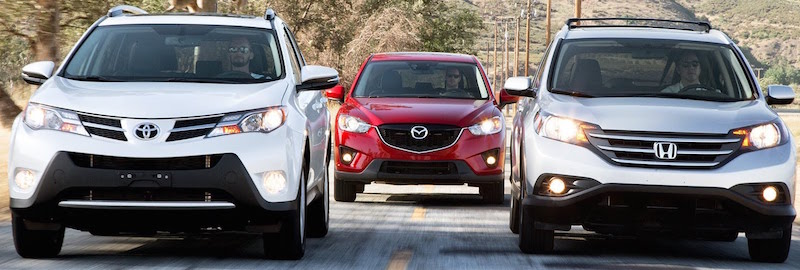
 Your Credit Estimate
Your Credit Estimate
 Your Credit
Your Credit
Your zip code helps us provide you with the most accurate vehicle pricing and vehicle availability.
We estimate your credit score to give you an idea of your monthly payments. To get an accurate payment amount, complete our credit application by clicking the Start Credit Application button below.
start credit application
In today’s automotive market, there are more segments and categories of vehicles than there ever has been in the past. A number of new terms, jargon, and body styles can be overwhelming for new car buyers.
Whether you are purchasing a car from a dealer or have decided to go the online car shopping route - it’s important to know what’s what when it comes to vehicle types.
One of the most explosive segments in recent years has been the Crossover or CUV segment. Every automotive brand has at least one, and they are ever increasing in popularity. What exactly is a crossover utility vehicle, and what makes it different from a sports utility vehicle, or SUV?
Some of the differences are obvious while others exist in a gray area. Today, we have everything you need to know about what sets a crossover apart from an SUV, and which one may be the perfect choice for your family.
Crossovers and SUVs are the perfect family vehicle. They can haul more than the average sedan, and generally offer more space for passengers to stretch out. The two vehicles exist in different segments, so check out what makes each one unique.
If you have a larger family or need a little extra space without the towing capability, a crossover is likely a good choice.
For those with large families, who need a high towing capacity and enjoy off-roading, an SUV may be a better route to go.
The decision to choose an SUV or crossover, can be easily made by making a list of what you need your vehicle to accomplish, and finding which one is best to fit those needs.